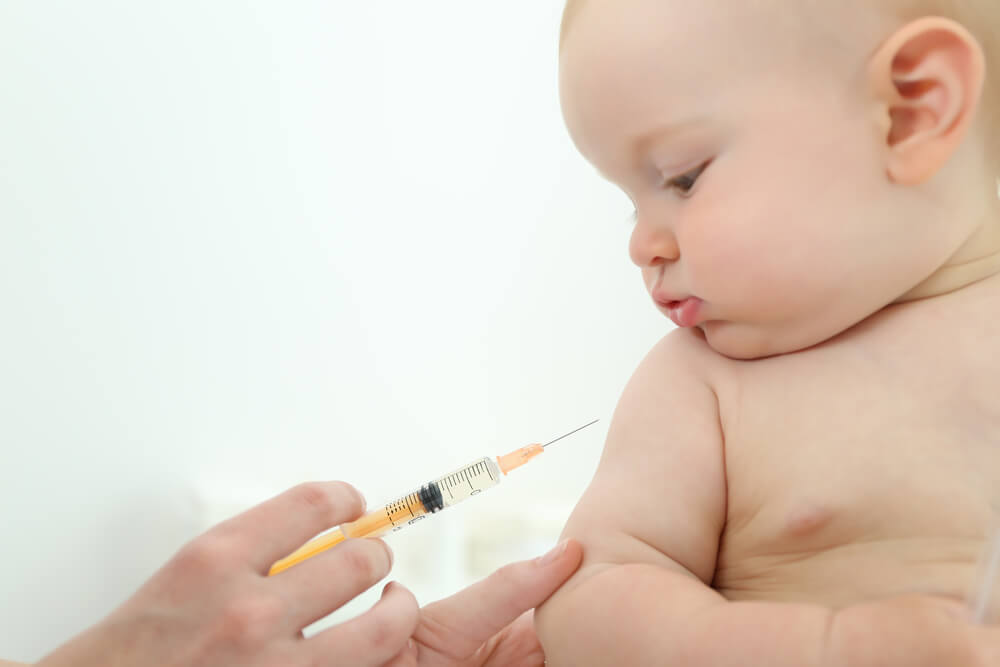
8 common reasons why parents do not get their babies vaccinated and why they should
18 May 2022 | 4 min Read
Tinystep
Author | 2574 Articles
The most important job of every parent is to protect their child against anything that can harm them. Vaccinations have the capability of protecting your baby against a host of diseases and illnesses. We all know the age old saying “Prevention is better than cure.” and that is exactly what vaccinations do – prevent your baby from anything that can cause harm to them! However, vaccines are also a very controversial topic these days. People believe that they are, in fact, not right for their babies. The decision to vaccinate or not depends entirely on the parents of the child. Having said that, this decision should be made bearing in mind that your child will have to live with the consequences, whatever they are, for the rest of their lives. Here are 8 most common reasons why moms don’t want to get their babies vaccinated, and why they should:
1. No trust in pharmaceutical companies.
With all the news reports and research on malicious practices happening in big pharma, it isn’t uncommon for parents to feel uncomfortable about getting their children vaccinated. While this may be true to some extent, it doesn’t mean that you will entirely give up on getting your child vaccinated. Consult your doctor for best advice and keep in mind the impact of certain illnesses on the welfare of your baby.
2. Alternate medicines work better.
The practices of Ayurveda and homeopathy have been in our country for several years and though they are great to some extent, parents should always take advice from a proper pediatrician on all matters regarding their baby’s health and wellbeing.
3. Vaccines will hamper the baby’s immune system.
When vaccines were being created a few decades back, it was definitely a matter of trial and error. Some vaccines created then did result in epidemics and weakening of immunity in children. However, today’s vaccines come with only a fraction of the antigens that kids used to receive back then, are completely safe, tried and tested, and are in fact imperative for your child’s health.
4. Vaccines contain toxins.
Most of this is just rumors and hearsay. The contents of a vaccination are very safe. Though some things may cause allergic reactions in some babies, it is a very rare occurrence. Vaccines are mostly just water mixed with antigens, and the additional things that go into them are put in to preserve contents and maintain the stability of the mixture for a longer duration.
5. There are too many side effects.
The fact of the matter is that mild side effects like high fever or febrile seizures aren’t unheard of when it comes to certain vaccines, but any major side effects are very rare! It is safe to say that the scale is inclined towards the benefits of vaccines.
6. Vaccines don’t actually work.
False. About 85%-95% vaccines are effective. They have resulted in far less premature deaths, hospitalizations and other disabilities in our time, and hence the data proves how effective these vaccinations actually are.
7. There is too much data against vaccines and too many people against them.
Again, vaccines are very safe and the side effects, if any, are rare! Being a controversial issue, you may sometimes hear or read things that aren’t completely true and experts everywhere say that it is best to get your baby vaccinated at all costs!
8. Newborn’s immune system may not be developed enough for vaccines.
This makes parents go for just the most important vaccines and skip or postpone others. But you should know that your doctor obviously knows best. Delaying some vaccines can prove to be as fatal as not getting any at all.
A


Suggestions offered by doctors on BabyChakra are of advisory nature i.e., for educational and informational purposes only. Content posted on, created for, or compiled by BabyChakra is not intended or designed to replace your doctor's independent judgment about any symptom, condition, or the appropriateness or risks of a procedure or treatment for a given person.
